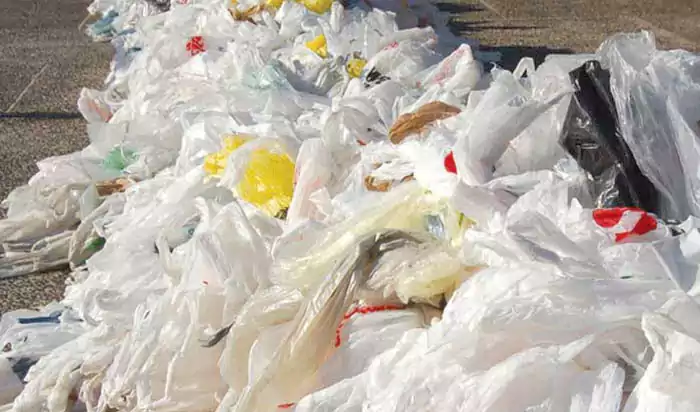In a decisive move to combat environmental pollution especially smog, the Punjab Government has announced its decision to impose a ban on plastic bags across the province. The decision was made during a smog eradication session presided over by Senior Provincial Minister Marriyum Aurangzeb, where the performance of various departments and stakeholders involved in addressing air pollution was closely monitored.
Senior Provincial Minister Marriyum Aurangzeb declared that the ban on plastic bags would be enforced throughout Punjab starting from June 6. She emphasized the importance of public awareness campaigns regarding smog eradication initiatives.
Marriyum Aurangzeb also revealed plans to subsidize the production of solar panels at the local level across Punjab, praising the commendable efforts in this regard.
She disclosed that all government buildings would undergo solarization under the solar program. Highlighting the significance of vehicle emissions in exacerbating smog, provincial minister stressed the necessity of fitness certificates and annual inspections for all vehicles as part of the efforts to tackle air pollution effectively.
The announcement underscores the Punjab Government’s commitment to addressing environmental challenges and promoting sustainable practices for a cleaner and healthier environment.
Moreover, Pakistan Hitech Hybrid Seed Association (PHHSA) voiced its demand for inclusion as a stakeholder in the National Seed Development and Regulatory Authority (NSDRA) to make it an effective national body for achieving desired results crystal clearly enshrined in its mandate. Talking to media persons here, PHHSA Chairma n Shahzad Ali Malik said the genuine call stems from the associations commitment to enhancing the quality of seeds and combating the detrimental activities of the seed mafia, which continue to inflict substantial losses to farmers and agricultural production. “The PHHSAs genuine demand as a stakeholder in the NSDRA underscores the importance of industry representation in regulatory bodies tasked with overseeing seed development.
By participating in decision-making processes, the association aims to contribute its expertise and insights towards the formulation of effective policies and regulations that safeguard the interests of farmers,” he maintained. Shahzad Ali Malik, who had pioneered hybrid rice seed three decades ago in Pakistan with Chinese collaboration, said that one of the primary objectives behind the PHHSAs advocacy for enhanced representation is to address the pervasive issue of counterfeit and substandard seeds proliferated by unscrupulous elements within the seed mafia. These nefarious activities not only deceive unsuspecting farmers but also undermine the integrity of the agricultural sector, leading to significant economic losses and jeopardizing food security, he added. Malik was of the view that through coordinated efforts with law enforcement agencies and relevant authorities, stringent measures must be implemented to identify and prosecute individuals involved in the illicit trade of adulterated seeds. Such decisive action is essential to deter potential offenders and safeguard the livelihoods of farmers who rely on quality seeds for optimal crop yields.










